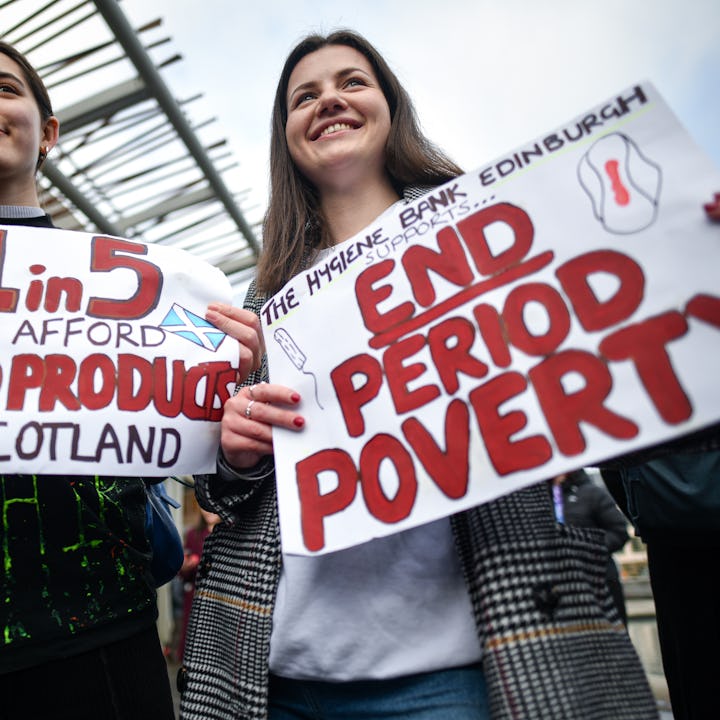Scotland Becomes The First Country To Make Period Products Free
The Period Products Act requires schools, colleges, and local government bodies to make period products free to anyone who needs them.

Scotland has become the first country in the world to legally protect access to free menstrual products. The legislation, which was passed in 2020 and came into force on August 15, is a vital move in the effort to end period poverty.
Under the new law, schools, colleges, and universities, along with local government bodies such as libraries and community centers, are required to have a range of period products available for free in their bathrooms. There is also a new mobile app that allows people to find the nearest location that offers free menstrual products.
“[The law] is about making sure that everyone can participate in education and work and sport and other leisure pursuits. You shouldn’t have to give that up because you’re on your period,” Monica Lennon, a member of parliament in Scotland who campaigned for the law, explained to TIME.
While researching for the bill in 2016, Lennon was shocked to learn that many Scottish women were not only unable to afford period products but would also miss school or work because they couldn’t afford said products, continuing the cycle of poverty. Some women were also prevented access to period products by controlling or abusive partners.
“Providing access to free period products is fundamental to equality and dignity, and removes the financial barriers to accessing them," Scottish Social Justice Secretary Shona Robison told Associated Press.
“This is more important than ever at a time when people are making difficult choices due to the cost of living crisis, and we never want anyone to be in a position where they cannot access period products," she added.
Globally, 500 million people who menstruate live in period poverty, or are unable to access period products due to financial constraints. Often, these people are forced to use items like wadded-up toilet paper, grass, and rags instead of menstrual pads, tampons, or menstrual cups. And this crisis isn’t limited to poor countries; according to the Journal of Global Health Reports, two-thirds of the 16.9 million low-income people who menstruate in the U.S. could not afford period products in the last year. That is over 11 million period-havers in the U.S. who don’t have access to menstrual products.
And one in five girls in America have missed school because of lack of access to period products.
“Periods are normal,” Lennon said. “No one should ever be made to feel ashamed, or that it’s dirty or needs to be hidden away.” Period.